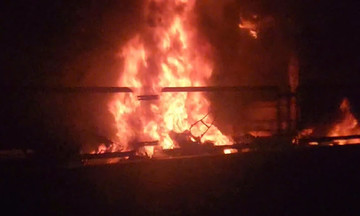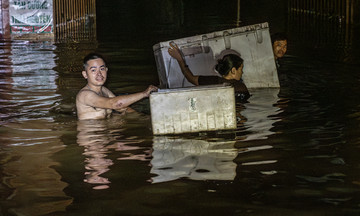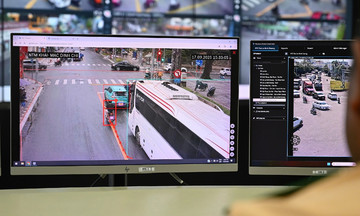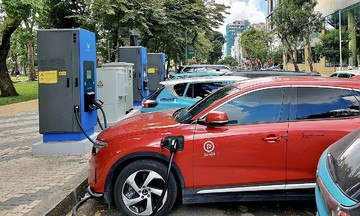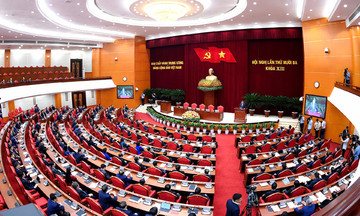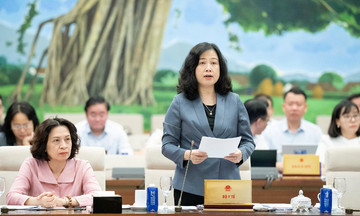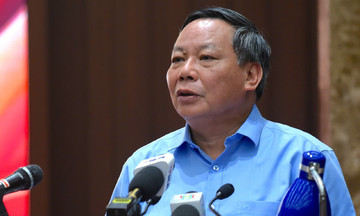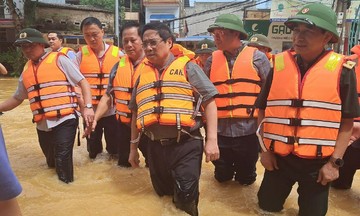On a morning in late August, Professor Jesus de los Santos Reno Cespedes, 66, an oncology and chemotherapy specialist, arrived at the Oncology Department of the Vietnam - Cuba Dong Hoi Friendship Hospital to begin his workday. As usual, he was busy examining patients, studying medical records, and developing treatment plans.
Coming from a poor family but eager to learn, Dr. Reno recounted how he entered Santiago de Cuba Medical University in 1978. After graduating, he spent two years serving in the military before working at the National Institute of Oncology and Radiobiology in Cuba, where he became head of the pediatric department.
Before coming to Vietnam, Professor Reno had over 30 years of experience working in France, the US, and Australia as a specialist, transferring technical expertise to hospitals. He is a leading oncologist in Cuba, proficient in minimally invasive treatment techniques, especially chemotherapy.
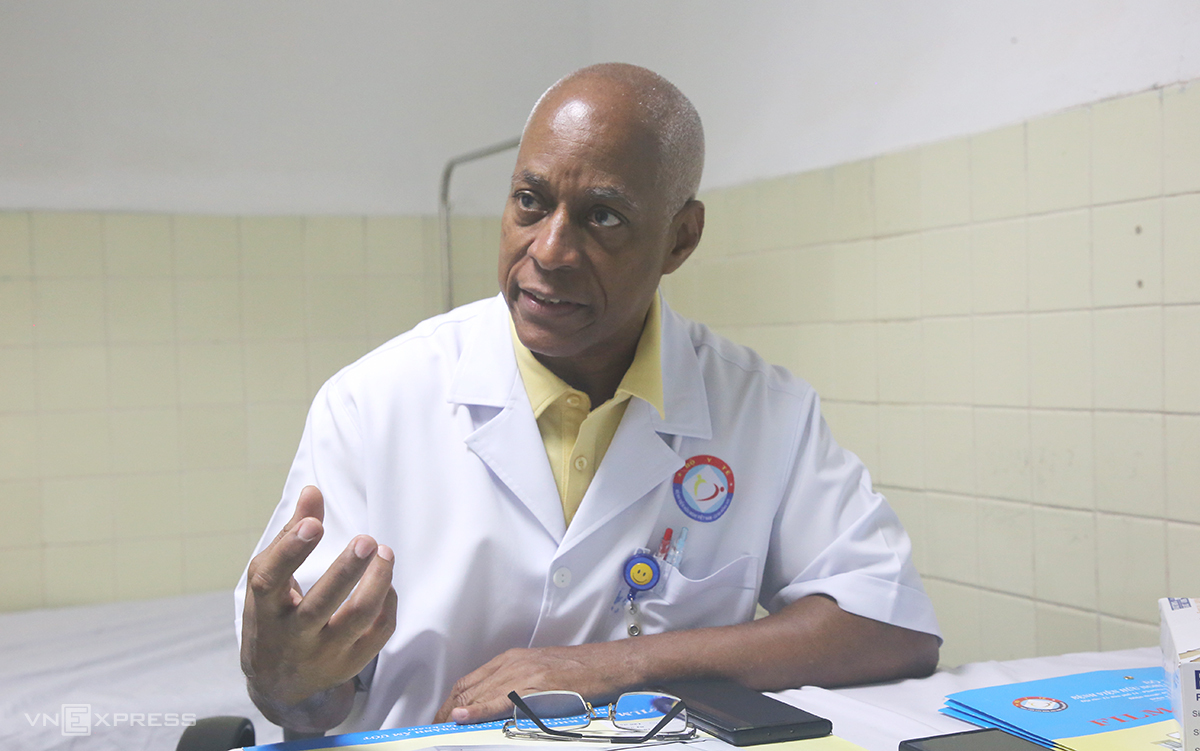 |
Professor Jesus de los Santos Reno Cespedes. Photo: Dac Thanh |
Professor Jesus de los Santos Reno Cespedes. Photo: Dac Thanh
Among the dozens of projects he has undertaken, two notable studies include a phase IV clinical trial with recombinant Erythropoietin (ior® EPOCIM). The research evaluated the drug's effects on anemic pediatric cancer patients after chemotherapy and radiotherapy. The results showed that the therapy significantly improved quality of life, increased recovery, and reduced the risk of complications.
Another project was the application of Metaiodobenzylguanidine (MIBG) in diagnosing neuroendocrine tumors. Using the radioactive substance MIBG allowed for accurate diagnosis of neuroendocrine tumors in children, a type of cancer often difficult to detect early with traditional methods. This achievement has contributed significantly to selecting treatment plans and improving survival rates for children.
These studies not only have scientific value but also high applicability, supporting the treatment of pediatric cancer in Cuba and many other countries.
As part of a medical expert exchange program between Vietnam and Cuba, in July 2019, he bid farewell to his wife and two daughters to join the Oncology Department as one of 7 Cuban doctors working at the hospital. For the past six years, Professor Reno has contributed to the implementation of the Cancer Chemotherapy project at the hospital. During the Covid-19 period, he and his colleagues received and treated many cancer patients.
He also proposed new projects, such as the Multidisciplinary Tumor Board and the Cardio-Oncology Unit, to improve the quality of patient care. With his strength in chemotherapy, he has promoted the development of oncology at the hospital, providing chemotherapy treatment methods.
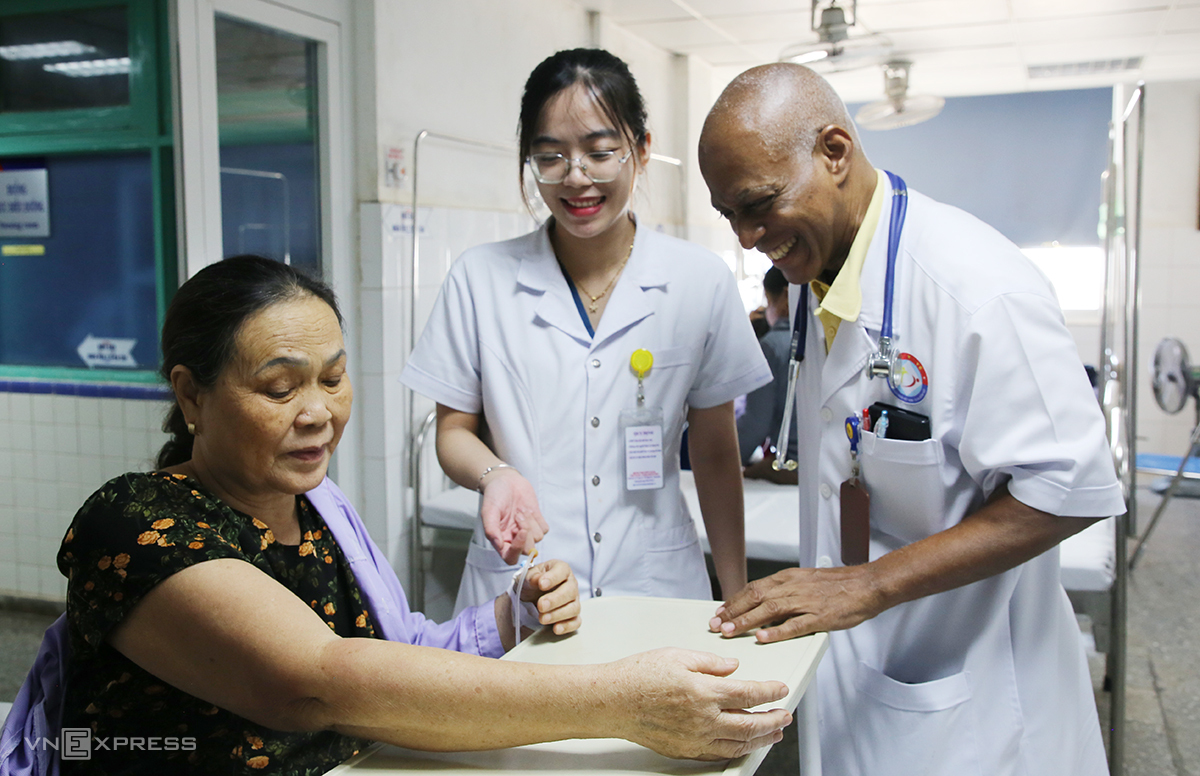 |
Professor Jesus de los Santos Reno Cespedes examining a patient in the Oncology Department. Photo: Dac Thanh |
Professor Jesus de los Santos Reno Cespedes examining a patient in the Oncology Department. Photo: Dac Thanh
Quang Tri, a sunny, windy coastal region, reminds Professor Reno of his hometown. "I love the sea, enjoy soups, and am impressed with the richness of Vietnamese cuisine," he shared, adding that the people here are wonderful, the culture is similar to Cuba's, and the nature is magnificent with a system of beautiful caves.
According to the cooperation program, Professor Reno was to work at the hospital for two years. However, at the hospital's request and due to his attachment to Quang Tri, he decided to stay longer. "I consider Quang Tri my second home; everyone is sincere, and I am loved and cherished like a family member," he said.
His strong desire to treat patients and transfer modern techniques like radiotherapy and nuclear medicine to his colleagues led him to extend his stay to six years. While planning to return home at the end of the year, he said he is "ready to cooperate whenever you need me".
Referring to the campaign to support the Cuban people, Dr. Reno said: "Thank you, Vietnam. No other country in the world has done that, no other people have shown their love for the Cuban people like Vietnam has. For Cuba, this is help from a true brother."
Professor Reno speaks about the campaign to support the Cuban people. Video: Dac Thanh
Nguyen Duc Cuong, Director of the Vietnam - Cuba Dong Hoi Friendship Hospital, assessed that with Professor Reno's experience in anti-cancer chemotherapy and years of working in many countries, he quickly integrated and collaborated with doctors to examine, consult, and develop treatment plans for each patient.
The professor directly monitors the chemotherapy process, assesses and handles patient developments. As a result, the number of patients agreeing to treatment at the hospital has gradually increased, reducing the need for transfers to higher levels and easing the financial burden on families.
According to Mr. Cuong, in addition to Professor Reno, since 2018, 6 other qualified doctors and medical experts from Cuba have come to work at the hospital. These experts come from various specialties such as interventional cardiology, neurosurgery, endoscopy, and pediatric infectious diseases. They all have good professional qualifications, scientific working methods, and have participated in emergency care and treatment of many critically ill patients.
"Our doctors not only learn professional expertise but also adopt the working style and attitude of the experts, thereby improving the quality of examination and treatment," Mr. Cuong said.
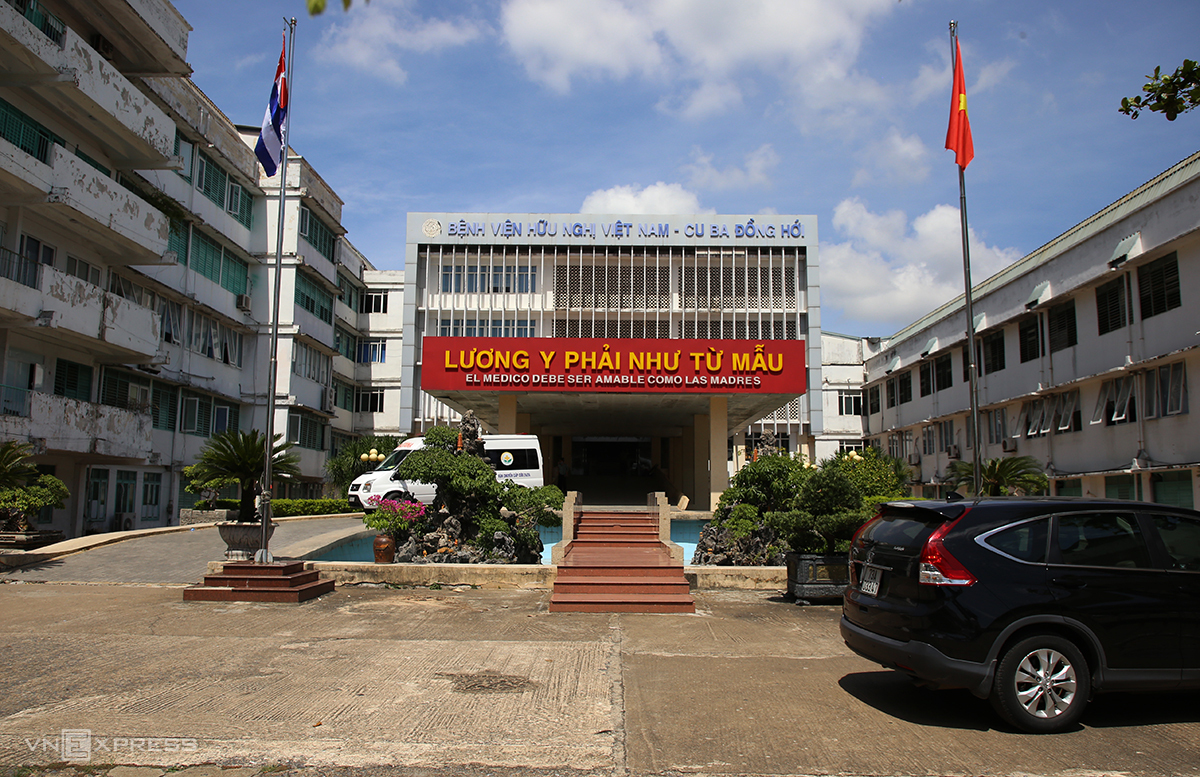 |
Vietnam - Cuba Dong Hoi Friendship Hospital. Photo: Dac Thanh |
Vietnam - Cuba Dong Hoi Friendship Hospital. Photo: Dac Thanh
More than 50 years ago, on 17/9/1973, during a visit to the war-torn land of Quang Tri, witnessing the losses suffered by the people during the struggle for national liberation and reunification, President Fidel Castro decided to donate a complete general hospital with modern and synchronized equipment.
In May 1974, over 100 Cuban experts, engineers, and workers, along with Vietnamese counterparts, began construction of the hospital. After seven years, the Vietnam - Cuba Dong Hoi Friendship Hospital was inaugurated. For the past 44 years, the hospital has continuously received support from Cuba in terms of materials, technology, and human resources.
Dac Thanh



